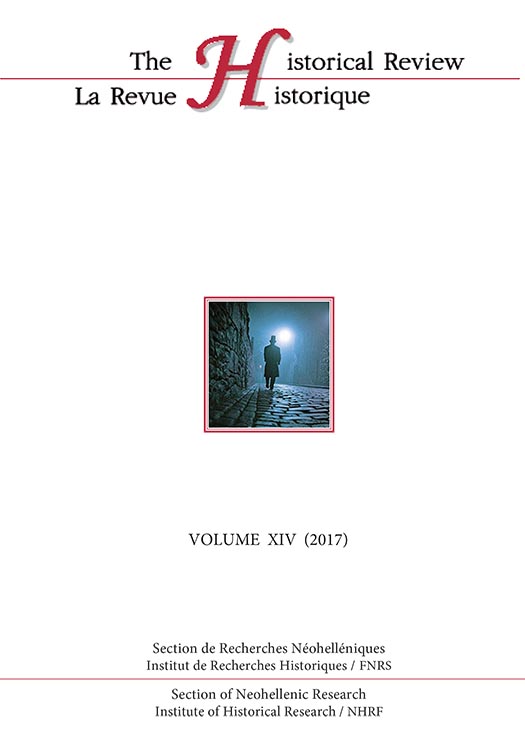Dear to the Gods, yet all too human: Demetrios Capetanakis and the Mythology of the Hellenic
Abstract
Philosopher and poet Demetrios Capetanakis (1912-1944) struggled with
the ideas of Hellenism and Greekness throughout his short life while moving across languages, cultures, and philosophical traditions. In one of his early essays, Mythology of the Beautiful (1937; in Greek), Hellenism is approached through the lens of eros, pain and the human body. Capetanakis distances himself both from the discourse put forth by the Generation of the Thirties and from the neo-Kantian philosophy of his mentors, and in particular Constantine Tsatsos, while attempting a bold synthesis of Platonic philosophy with the philosophy of despair (Kierkegaard, Shestov). By upholding the classical over and against the romantic tradition, as exemplified in the life and work of Johann Joachim Winckelmann, he seeks to present Hellenism not as a universal ideal, but as an individual life stance grounded on the concrete. His concern for the particular becomes more pronounced in a later essay, “The Greeks are Human Beings” (1941; in English), where, however, one senses a shift away from aesthetics, towards ethics and history.
Article Details
- How to Cite
-
Kantzia, E. (2018). Dear to the Gods, yet all too human: Demetrios Capetanakis and the Mythology of the Hellenic. The Historical Review/La Revue Historique, 14, 187–209. https://doi.org/10.12681/hr.16300
- Issue
- Vol. 14 (2017)
- Section
- Articles

This work is licensed under a Creative Commons Attribution-NonCommercial-ShareAlike 4.0 International License.
The copyright for articles in this journal is retained by the author(s), with first publication rights granted to the journal. By virtue of their appearance in this open access journal, articles are free to use with proper attribution in educational and other non-commercial sectors. The Historical Review/La Revue Historique retains the right to publish papers that appear in the journal in collective volumes published by the Institute for Neohellenic Research/National Hellenic Research Foundation.
Sample acknowledgement: Reprinted with permission from the author. Original publication in the The Historical Review/La Revue Historique www.historicalreview.org
This work is licensed under a Creative Commons Attribution-NonCommercial-ShareAlike 4.0 Greece License. To view a copy of this license, visit http://creativecommons.org/licenses/by-nc-sa/4.0/ or send a letter to Creative Commons, 543 Howard Street, 5th Floor, San Francisco, California, 94105, USA



